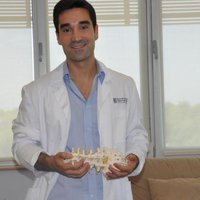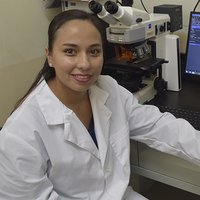The gene editing technology CRISPR was controversial from the start. After a patent war between the Broad Institue and the University of California (both in the US), the question of whether such an easy to use DNA manipulation tool could lead to ethically questionable advances like, for example, "designer babies" was widely debated. But CRISPR´s potential benefits have convinced researchers to continue exploring and developing the tool. Serious and lethal genetic disorders like Duchenne´s muscular dystrophy, which presents during childhood and cuts short the life of patients before they reach adulthood, could be eradicated thanks to CRISPR.
CRISPR technologies basically work like a pair of scissors capable of "copying and pasting" the letters within a string of DNA. This technique allows scientists to modify part of a person´s genome with great precision and introduce changes through vectors, the molecules responsible for transporting the new genes which will be replicated in the target cells. One of the great challenges posed by this type of gene therapies is simplifying the process of identifying the best vectors for each person and condition.
To address this problem, Victor Dillard has designed Desktop Genetics, a platform that uses artificial intelligence to identify the best vectors according to the genotype of each patient to develop the most effective therapy possible. Thanks to this idea, Dillar has been named as one of MIT Technology Review, Spanish edition´s Innovators Under 35 Europe 2017. The young innovator explains: "With this system, we can improve the way that therapies are directed to the genetic root of an illness. To ensure the potential of this technique, we have to do this safely and efficiently, and that is why we designed this platform."
Since a person´s DNA contains millions of different letters, gene therapies must be extremely precise. With Desktop Genetics, finding the vector which will afford the greatest precision with the least possible side effects for each patient is much easier.
"CRISPR is a moonshot," Dillard says. Among the numerous obstacles facing this gene editing technology are financing and regulations. "The technology is already here, but it needs more financing, which is limiting progress." In this young innovator´s opinion, it will be necessary to "convince investors through results despite offering a 15-year return on their investment."
Desktop Genetics has received the support of Illumina Inc, one of the first companies to commercialize genomic analysis systems which achieved a 99,6% of the price of genome sequencing. Over 5,700 scientists have already used the platform to design more than 15,000 CRISPR vectors. Faced with these numbers, the postdoctoral research associate at the Massachusetts Institute of Technology (MIT, US), jury member for the Innovator Under 35 Europe 2017 awards and previous IU35 laureate, César de la Fuente, describes Desktop Genetics as an "excellent innovation" which could "lead the development of CRISPR-based therapies with fewer side effects."
By Laura Crespo
Translation: Teresa Woods




